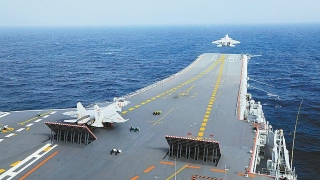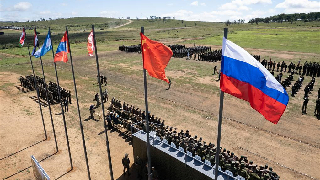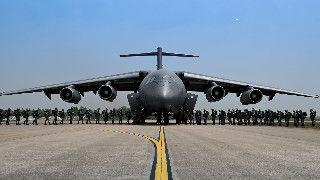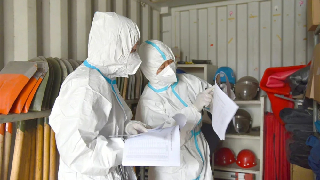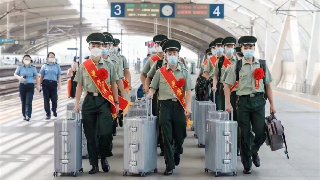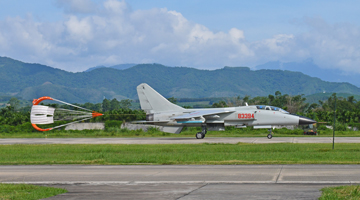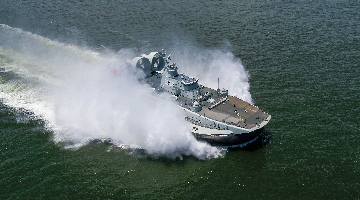By Wu Dahui
Member of the Political Bureau of the CPC Central Committee and Director of the Office of the Central Commission for Foreign Affairs Yang Jiechi and Secretary of the Security Council of the Russian Federation Nikolai Patrushev co-chaired the 17th round of China-Russia strategic security consultation in Fujian on September 19. Both sides agreed to continue to make good use of the strategic security consultation mechanism as an important platform, enhance mutual trust and support each other in pursuing a development path suited to respective national conditions, jointly maintain global strategic stability, and continuously consolidate and enrich the comprehensive strategic partnership of coordination between the two countries. The routine consultation between China and Russia has nonetheless put the US side on pins and needles and set Washington giving free rein to its imaginations.
First, Washington makes groundless and wild conjectures at routine China-Russia strategic consultation.
The Chinese and Russian heads of state suggested establishing a regular strategic security consultation mechanism in 2005, which would be held annually on principle but has been suspended since 2020 because of the COVID-19 pandemic. Under this mechanism, the two countries discuss a series of major issues including their strategic security, military and security cooperation, global strategic stability, and regional peace and development to make sure they are on the same page regarding issues concerning each other’s core interests and major concerns.
During the latest consultation, Yang Jiechi and Patrushev agreed to continue to implement the consensus reached by the Chinese and Russian heads of state during their meeting on the sidelines of the Samarkand Summit of the Shanghai Cooperation Organization, and firmly support each other on issues concerning each other’s core interests and major concerns. Yet the US side, noting that the strategic dialogue happened after the SCO summit, conjectured that China and Russia might have reached a consensus at the summit to jointly counter NATO or the West, and the strategic security consultation was arranged to make specific preparations for implementing the consensus, with further strategic coordination underway.
Second, Washington has wild imaginations about the location where the strategic consultation is held.
Director Yang welcomed Patrushev in his hometown Nanping, Fujian Province as a token of hospitality, but American media, considering that Nanping is only more than 300km away from Taiwan Island, said the selection of the site obviously pointed to the recent tension across the Taiwan Strait and was aimed to showcase Russia’s staunch support to China on the Taiwan question.
On the day before the China-Russia consultation, President Biden again “confirmed that US troops would defend Taiwan in the event of an attack from China” in an interview with US media. The next day, when the consultation was on, the upcoming commander of US Strategic Command Gen. Anthony Cotton threatened at the Senate hearing that both China and Russia know America has a strong and resilient nuclear force that is offering deterrence to itself and extended deterrence to its allies.
Third, Washington, being unable to tank the China-Russia strategic coordination, is bent on stigmatizing it.
Ever since the China-Russia strategic partnership of coordination was formed in 1996, the US side has left no stone unturned in trying to throw hurdles to the development of their relations. At first, it belittled their strategic relationship as an expedient. Seeing it climbing new heights constantly under the vision of the two state leaders, it then went to extremes trying to drive a wedge to split the strategic coordination.
After the China-Russia strategic coordination withstood America’s strategic adjustment after the 9/11 attacks, the West’s smearing of China over COVID-19, and the Ukraine crisis, Washington chose to stigmatize the China-Russia strategic partnership of coordination as the axis of the anti-West alliance. It has thrown out all kinds of fallacies about the Russia-Ukraine conflict, such as China being in the know, being an accomplice, providing military aid or crippling the West’s sanctions. Now with the strategic security consultation, the US once again hyped up the allegation that Russia may ask China to provide weapons in order to accelerate the process in Ukraine.
The China-Russia strategic partnership of coordination has its own logic and tempo of development, and it will keep growing and deepening no matter how hard Washington tries to undermine or stigmatize it. The center of the China-Russia relation is non-alignment, non-confrontation, and not targeting a third party. Neither of them is interested in forming a so-called “anti-West alliance”, but follows a new security outlook as different from the Western-style Cold War mentality as heaven from earth. Both being permanent members of the UN Security Council, China and Russia, as major countries, shoulder the moral obligation of preserving global and regional stability. Their strategic security consultation is not only a long-term mechanism for safeguarding their core security interests but also an effective platform to maintain world peace and regional stability.
(The author is deputy director of the Russian Institute of Tsinghua University)
Editor’s note: Originally published on huanqiu.com, this article is translated from Chinese into English and edited by the China Military Online. The information and opinions in this article do not necessarily reflect the views of eng.chinamil.com.cn.
